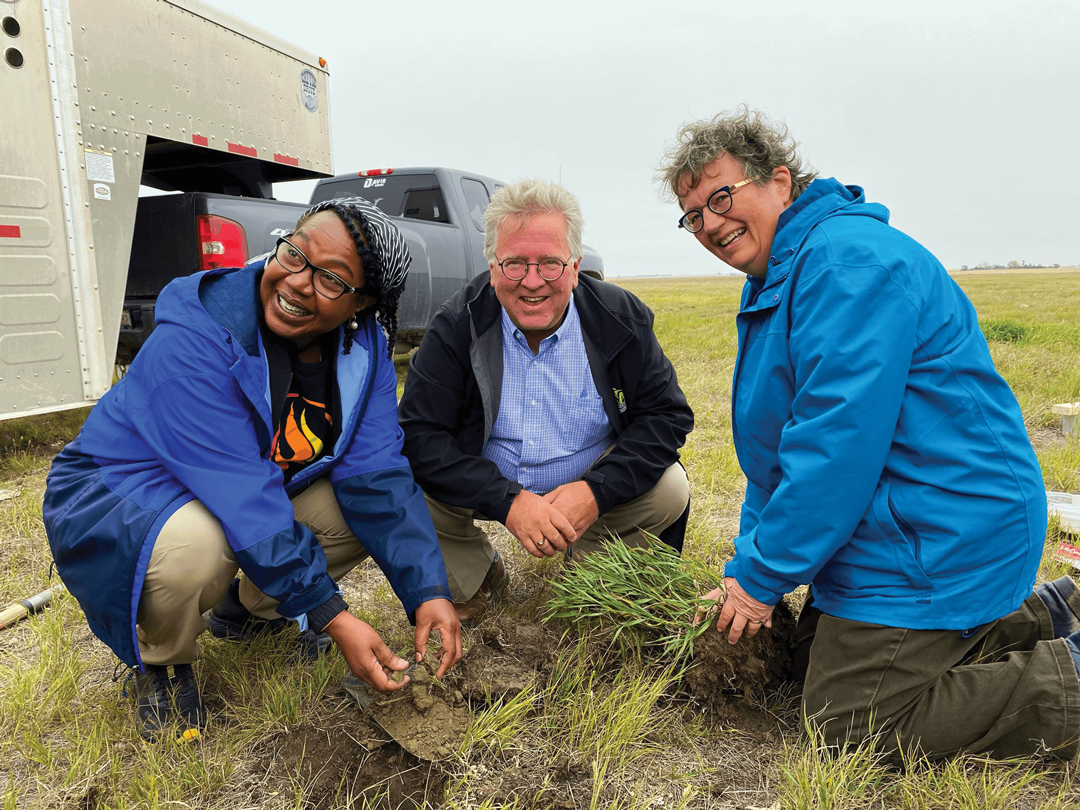A CALL FOR PORT GOVERNANCE REFORM
BY IAN DOIG • PHOTO OF WADE SOBKOWICH COURTESY OF WGEA
The Western Grain Elevator Association (WGEA) has called for change to the way Canadian ports are governed. The organization represents grain companies that move 95 per cent of Canadian grain exports. Aimed primarily at the Port of Vancouver, the WGEA claims all ports lack accountability and grain terminals do not have adequate means to dispute their actions.
“We’re worried our future in the Port of Vancouver is in jeopardy. Some of the decisions the Port is making are not in the grain industry’s best interest,” said Wade Sobkowich, WGEA executive director. “Any of the costs or inefficiencies extracted from the grain industry as a result of poor governance are shared among all industry participants, including farmers.
“What’s at jeopardy is the capacity and the cost,” said Sobkowich. The Port’s rent formula is tied to Greater Vancouver real estate prices, which he said has produced a 29 per cent increase in North Shore grain terminal rent and an approximate 10 per cent increase on the South Shore as of 2019. He said ports operate in the national interest, so localized rent formulas are not appropriate. He also noted infrastructure fees have doubled or tripled.
On the capacity side, he opposes the Port’s ability to interpret the Canada Marine Act, under which it operates, as it sees fit. Its decisions affect which terminals and industries benefit over others relative to infrastructure priorities and projects but with no checks and balances, he said. “We don’t have transparency into how and why these increases are coming at us.”
Bulk grain exporters claim this systemic uncertainty has made them fear their terminal leases may not be renewed given, for example, the Port’s increasing focus on container shipments. To provide greater certainty, the WGEA calls for a dispute resolution mechanism similar to the existing railway arbitration process.
Sobkowich acknowledged the WGEA has little leverage and calls upon the federal government to address these and additional issues in its ongoing review of port governance, the Port Modernization Act. “We want a bill to amend the Canada Marine Act that addresses the concerns we are raising.” In support, he cited the government’s stated mandate to update governance structures that promote investment in Canadian ports and a 2017 review of the Canada Transportation Act that pointedly called for governance improvement.
As a third party to the discussion, the Alberta Wheat and Barley Commissions takes a conciliatory stance. “Alberta’s farmers are actively investing in increasing their grain production, and we expect terminal elevators to move more grain every year,” said Geoff Backman, manager, business development and markets for the commissions. “The WGEA comments suggest the grain industry and Prairie Provinces are under-represented. In particular, at the Port of Vancouver, which Alberta heavily relies on for exports. We want western interests to be properly represented with respect to port governance.”
The high price and limited availability of industrial land and increase in user demand are outside the Port’s control said Doug Mills, senior account representative, trade and development, Vancouver Fraser Port Authority, the port’s management body. Though it can’t champion each of its terminal customers, he said the Port must make sometimes unpopular decisions but uses its resources as efficiently as possible for the benefit of all.
Mills welcomes the Port Modernization Act and the clarity it will provide the Port and its stakeholders.
He said the Port’s accommodation of the incredible growth of grain exports in recent decades is a testament to its planning and preparation to provide adequate handling capacity. It has invested along with multiple levels of government to augment railway and grain company investment to build capacity. “It’s been extremely successful. Grain, for the first time, is the largest traded commodity through this port,” said Mills. “This is the report card that says we are supplying capacity for the farming community and Canada’s grain trade.”







Comments